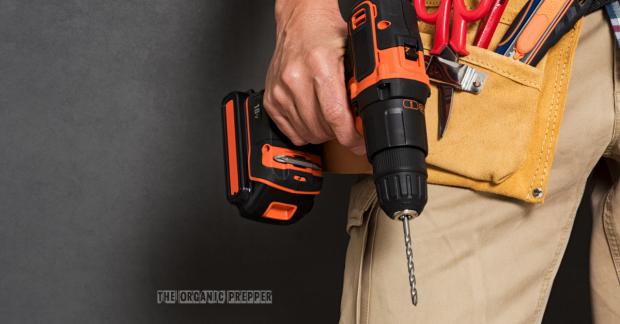
Breaking News
 AI Driven Coding Tools – Cursor, Claude Code and More
AI Driven Coding Tools – Cursor, Claude Code and More
 The Cost Of Living Is Out Of Control
The Cost Of Living Is Out Of Control
 The Systematic Unraveling of the Administrative State
The Systematic Unraveling of the Administrative State
Top Tech News
Magic mushrooms may hold the secret to longevity: Psilocybin extends lifespan by 57%...
 Unitree G1 vs Boston Dynamics Atlas vs Optimus Gen 2 Robot– Who Wins?
Unitree G1 vs Boston Dynamics Atlas vs Optimus Gen 2 Robot– Who Wins?
 LFP Battery Fire Safety: What You NEED to Know
LFP Battery Fire Safety: What You NEED to Know
 Final Summer Solar Panel Test: Bifacial Optimization. Save Money w/ These Results!
Final Summer Solar Panel Test: Bifacial Optimization. Save Money w/ These Results!
 MEDICAL MIRACLE IN JAPAN: Paralyzed Man Stands Again After Revolutionary Stem Cell Treatment!
MEDICAL MIRACLE IN JAPAN: Paralyzed Man Stands Again After Revolutionary Stem Cell Treatment!
 Insulator Becomes Conducting Semiconductor And Could Make Superelastic Silicone Solar Panels
Insulator Becomes Conducting Semiconductor And Could Make Superelastic Silicone Solar Panels
 Slate Truck's Under $20,000 Price Tag Just Became A Political Casualty
Slate Truck's Under $20,000 Price Tag Just Became A Political Casualty
 Wisdom Teeth Contain Unique Stem Cell That Can Form Cartilage, Neurons, and Heart Tissue
Wisdom Teeth Contain Unique Stem Cell That Can Form Cartilage, Neurons, and Heart Tissue
 Hay fever breakthrough: 'Molecular shield' blocks allergy trigger at the site
Hay fever breakthrough: 'Molecular shield' blocks allergy trigger at the site
Ingenuity: Parallel Economies to Survive Economic Crisis

This article will delve into the somewhat out-of-the-ordinary, uncommon ways many Venezuelans turned to informal and innovative economic structures to secure food, medicine, and essential services. Below, you will read some real-life examples of adaptation to combat hyperinflation and economic collapse by creating informal and often innovative systems to secure necessities. What you are reading now is the byproduct of some of those initiatives of mine.
The gap between wages (I simply can't explain why these are so low) and the price of goods has forced Venezuela's working-class population to develop multiple and creative ways to earn income. While this phenomenon isn't new, it has worsened alongside the economic collapse. Hand in hand with dollarization, and something that we could interpret as a revival of commerce, the country has gone from being one of the cheapest to one of the most expensive in South America.
"Tiger killing"
One of the examples is Mr. B., a professional musician born in Caracas, now in his 50s, who found his passion for music influenced by his older sister, another musician. Growing up in the lower-middle-class area of Caricuao, Jaime started playing the flute, along with a Peruvian quena, both of which would become his constant companions in the harsh times to come.
Mr. B is a living example of Venezuela's relentless struggle to survive, as many other professionals, with a career of over 30 years in music that includes studies at the José Ángel Lamas Conservatory and the Central University of Venezuela. In a country with a formerly vibrant oil and gas industry, diverse technical studies were once the most in demand. However, even then, under the light of economic development in those years, all kinds of activities were decently rewarded. Teachers could make a decent living, even music teachers.
Nowadays, many teachers mostly dedicate themselves to activities with the popular street name as a description: "killing tigers". Meaning with this expression, that any kind of economic activity is valid: raising chickens, pigs, for those in a more rural environment. In the cities, many people resort to driving a cab, or working part-time in a fruit and vegetables shop, or with a hotdog cart at night, sewing, nails, hairdressing, delivery, private classes, housekeeping, waitress in a restaurant, you name it.
As a side note, the "tiger killing" (not exactly "hunting") expression means that people will find side jobs doing a variety of different chores.
It seems to derive historically from the second half of the 19th Century, and the first 3-4 decades of the 20th century. Its origin is linked to the peasants who worked as hunters to keep the big feline predator population at bay, to avoid them preying on the cattle in the haciendas, usually surrounded by wilderness. A tiger's corpse was then delivered to the owner, and he would pay handsomely to the hunter. Considering that back in the day Venezuela wasn't even 5 million people living in almost one million square km, tigers were a hazard even for peasants in the countryside. Don't take my word for this, but this is what my dad's historical memories record exhibits.

 Talk to the AI Hand!
Talk to the AI Hand! AI Getting Better at Medical Diagnosis
AI Getting Better at Medical Diagnosis

